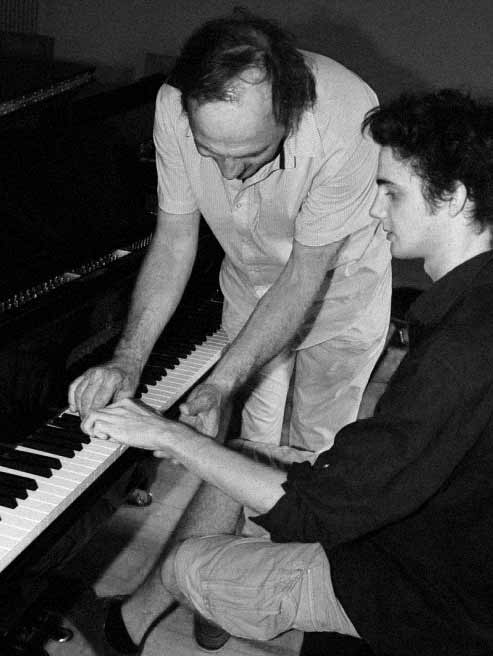


Christian Favre has been a professor at the Haute Ecole de Musique de Lausanne (HEMU) since 1985 and at the same time, he has been giving master classes in Poland, Hungary and Switzerland. Since 1994, he has been a guest lecturer at the Internationale Sommerakademie Biel every year.
« During 35 years of teaching, I have had the privilege to be in touch with rich personalities that are enthusiastic and passionate about music and today I am happy to see that most of them shine in the music world as artists, teachers or composers.
My teaching is the result of a reflection on the role of the pianist in the modern world. Before the arrival of recording means and the radio, composers were the interpreters of their music and most of the time, musicians were also composers. One of the latest representatives of this tradition is Sergei Rachmaninoff. Similarly, in my opinion, the ideal contemporary musician is the one who most resembles the Kapellmeister of the eighteenth century, that is to say the one who is capable of improvising, transcribing, transposing, composing and playing his music and that of others.
When a young pianist comes to study with me, I ask myself two questions: what is he going to do with his musical life and how is he going to achieve it? The answers depend on multiple factors that create a human being, whether it be in physiological, emotional, intellectual terms, and so many others. From teacher’s aspect, this involves intuition, adaptation and understanding and this in accordance with the student’s personality. Each student is a unique world that has a potential for development of its own. My role is to guide and accompany them in their development and to find the keys so that they could achieve it by themselves.
I do not like to impose rules or use any methods because they only weaken musical awakening and creative development. However, I like the word “connection”. This is the word that I hear most often in my classes. The connection between sounds; the development of listening and legato. The connection between the works of the same composer and of the same era. The connection between human beings: the art of communication. The connection between senses and sensations: hearing, touch, emotions, personal freedom and natural contact with the instrument. The connection between arts, history and music. And finally, perhaps the most important, the connection between own experiences and music.
Christian Favre



